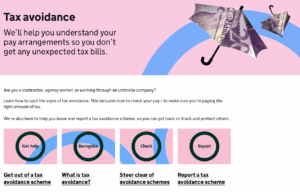
HMRC’s latest public awareness campaign, ‘Don’t Get Caught Out’, is being criticised by tax experts for blurring the lines between legal tax planning and illegal activity — a move that could confuse taxpayers and undermine the clarity of the UK tax system.
According to leading audit, tax and advisory firm Blick Rothenberg, the campaign repeatedly refers to “tax avoidance schemes” when describing behaviours that are more accurately labelled tax evasion or fraud.
Robert Salter, Director at Blick Rothenberg, said: “It’s good that HMRC is warning taxpayers about scams. But by calling these arrangements ‘tax avoidance schemes’, they are misusing terminology and potentially misleading the public. What they’re describing are clear cases of tax evasion or fraud — not avoidance.”
Salter stressed that tax avoidance is legal and often routine, involving tools like pension contributions, ISAs, or salary sacrifice schemes. By contrast, tax evasion involves deliberate concealment of income, assets or false reporting to avoid paying taxes — and is a criminal offence.
He added that conflating the terms could leave taxpayers unsure of what legitimate tax planning options are available to them, and inadvertently make it easier for scammers to exploit that confusion.
“Tax avoidance is legal and legitimate. It’s what many do when they contribute to a pension or adjust salary structures. But tax evasion is a crime. Using the right terminology matters — both for clarity and for protecting taxpayers,” Salter said.
The campaign’s messaging, intended to educate people about the risks of tax scams, could instead lead some to miss out on genuine tax-saving opportunities out of fear of crossing legal lines.
Salter warned: “If a taxpayer is put off from making legitimate choices due to this confusion, they could end up needlessly out of pocket. Worse, scammers could exploit the ambiguity to make unlawful schemes seem more credible.”
He urged HMRC to review the language used in its educational materials, stressing that clear distinctions between tax avoidance, tax evasion, and tax fraud are essential — not only to help the public navigate the system, but to maintain trust and prevent abuse.
“Making the distinction clearer will not only help protect taxpayers — it could also reduce the number of inquiries and investigations HMRC has to handle,” Salter concluded.
HMRC has yet to respond publicly to the criticism.
Read more:
HMRC criticised for misusing terminology in ‘don’t get caught out’ campaign on tax scams






























